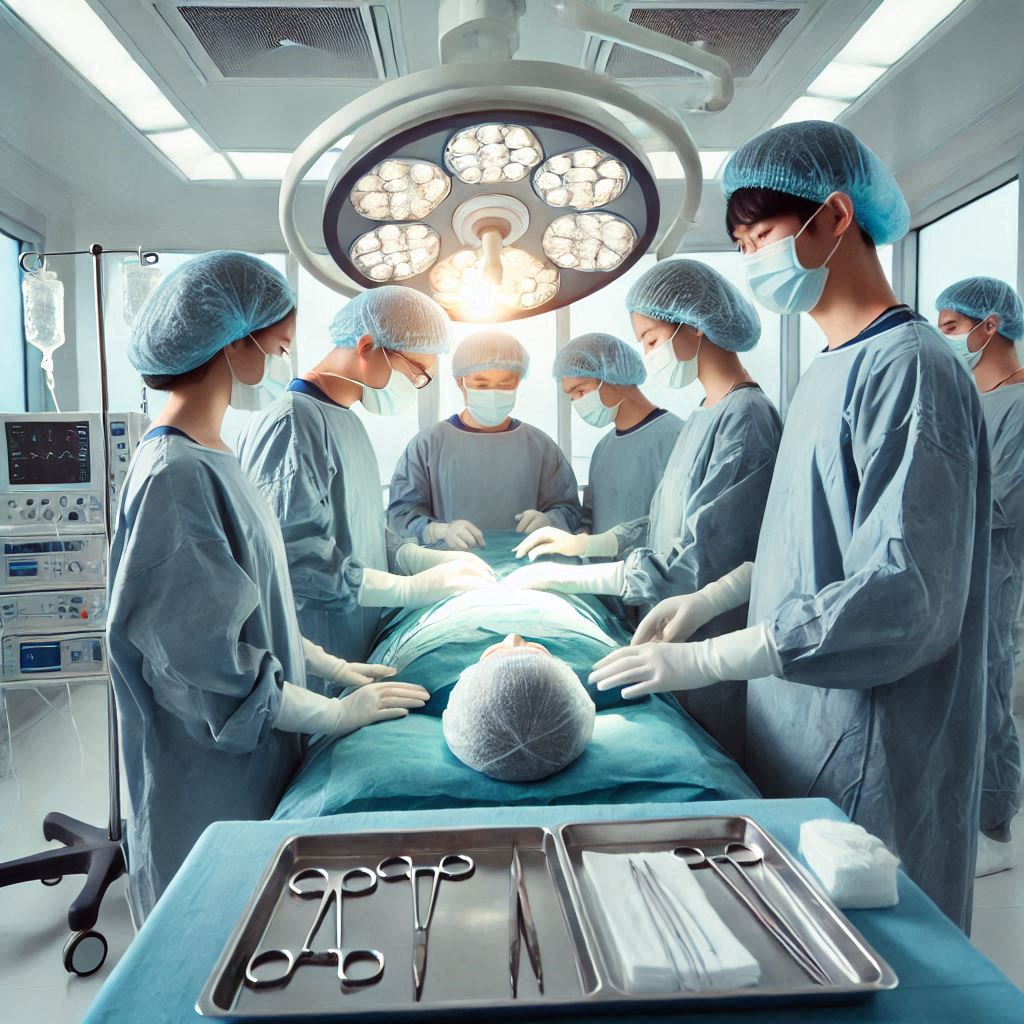This Course Structure is Curated as per the NEP-2020 Guidelines
Course Overview
M.Sc. Surgical Laparoscopic Technology program at Malla Reddy Vishwavidyapeeth, Hyderabad, is a postgraduate course designed to train students in the specialized techniques and technologies used in laparoscopic procedures, focusing on precision, patient safety, and surgical efficiency.
This program focuses on equipping students with the theoretical knowledge and hands-on skills from 1st semester itself. This program provides comprehensive training in advanced laparoscopic instrumentation, operating room management, and hands-on experience in procedures like appendectomies, cholecystectomies, and bariatric surgeries. Students gain in-depth knowledge of sterilization protocols, surgical workflows, and troubleshooting high-end laparoscopic equipment, ensuring they are well-prepared for real-world surgical environments.
Graduates of this program emerge as ‘Skilled Laparoscopic Surgical Technologists’, enabling them to pursue further higher studies and research in Laparoscopic Surgical Technology along with plenty of job opportunities globally.

Course Details
Description: 2 Years Degree Program
No. of Seats: 20
No. of Credits: 80 minimum & as specified
- Eligibility
- Curriculum Structure
- Program Outcomes
- Career Enhancement
- Higher Studies
- Job Roles & Progression
The minimum eligibility is a B.Sc. degree in Surgical Technology, Laparoscopic Technology or equivalent with at least 50% aggregate marks from a recognized university.
| Semester | Name of the Subject |
| Semester 1 | Advanced Anatomy and Physiology Basics of Laparoscopic Surgery Laparoscopic Instruments and Equipment Pharmacology in Surgery Practical: Laparoscopic Instrument Handling |
| Semester 2 | Minimally Invasive Surgical Techniques Patient Preparation and Positioning Infection Control in Surgery Anaesthesia in Laparoscopic Surgery Practical: Basic Laparoscopic Procedures |
| Semester 3 | Advanced Laparoscopic Procedures (Cholecystectomy, Appendectomy, Hernia Repair) Robotics in Laparoscopic Surgery Research Methodology and Biostatistics Quality Assurance in the Operating Room Practical: Advanced Laparoscopic Techniques |
| Semester 4 | Surgical Unit Management Emerging Technologies in Minimally Invasive Surgery Thesis/Research Project Practical: Surgical Unit Operations and Compliance |
- Laparoscopic Surgical Techniques: Proficiency in minimally invasive procedures such as cholecystectomy, appendectomy, and hernia repair.
- Laparoscopic Equipment Handling: Expertise in operating, maintaining, and troubleshooting laparoscopic and robotic surgical equipment.
- Patient Preparation and Positioning: Skills in patient preparation, sterile draping, and positioning for laparoscopic procedures.
- Infection Control and Sterilization: Knowledge of sterilization protocols and infection control practices within surgical settings.
- Advanced Robotics in Surgery: Familiarity with robotic-assisted surgical systems and their applications in minimally invasive procedures.
- Surgical Unit Management: Skills in managing workflow, safety protocols, and resources within a laparoscopic surgical unit.
- Certification in Advanced Laparoscopic Techniques: Specialized training in advanced minimally invasive techniques for various surgeries.
- Certification in Robotic-Assisted Surgery: Training in the use of robotic systems for surgical precision in laparoscopic procedures.
- Infection Control in Surgery Certification: Emphasizes infection prevention protocols within the surgical environment.
- Patient Positioning and Safety in Minimally Invasive Surgery: Training focused on patient safety, optimal positioning, and ergonomics during surgery.
- Surgical Unit Management Certification: Skills in handling the operational and logistical aspects of managing a laparoscopic surgery unit.
- Ph.D. in Surgical Technology or Minimally Invasive Surgery
- Fellowship in Advanced Laparoscopy or Robotic Surgery
- Postgraduate Diploma in Robotic Surgery
- Advanced Certifications in Pediatric or Oncologic Laparoscopy
| Duration | Roles and Responsibilities | Salary Range |
| 0-3 years | Laparoscopic Surgical Technologist, OT Technician | ₹4,50,000 – ₹7,00,000 per annum |
| 3-5 years | Senior Laparoscopic Technologist, Robotic Surgery Specialist | ₹7,00,000 – ₹10,00,000 per annum |
| 5-10 years | Surgical Unit Manager, Quality Assurance Specialist in Surgery | ₹10,00,000 – ₹15,00,000 per annum |
| 10+ years | Director of Surgical Services, Chief Laparoscopic Technologist | ₹15,00,000+ per annum |
Note: Salaries vary based on experience, location, and type of healthcare institution.

Fee Structure Per Academic Year
| Tuition Fee | Miscellaneous Fee | Scholarship | ||
| 200000 ₹ | 15000 ₹ | Above 90% – 40000 ₹ | Between 81-90% – 20000 ₹ | Between 71-80% – 10000 ₹ |




